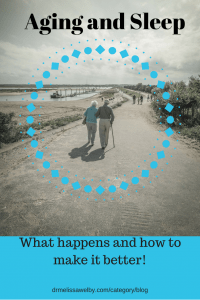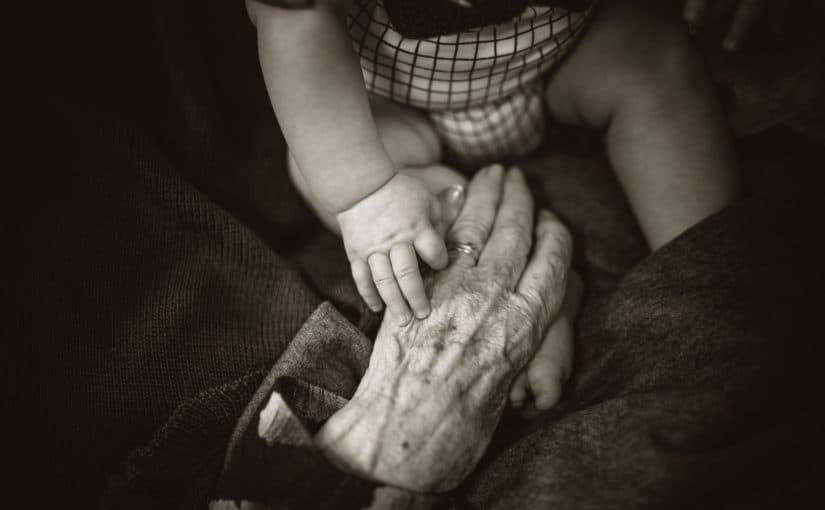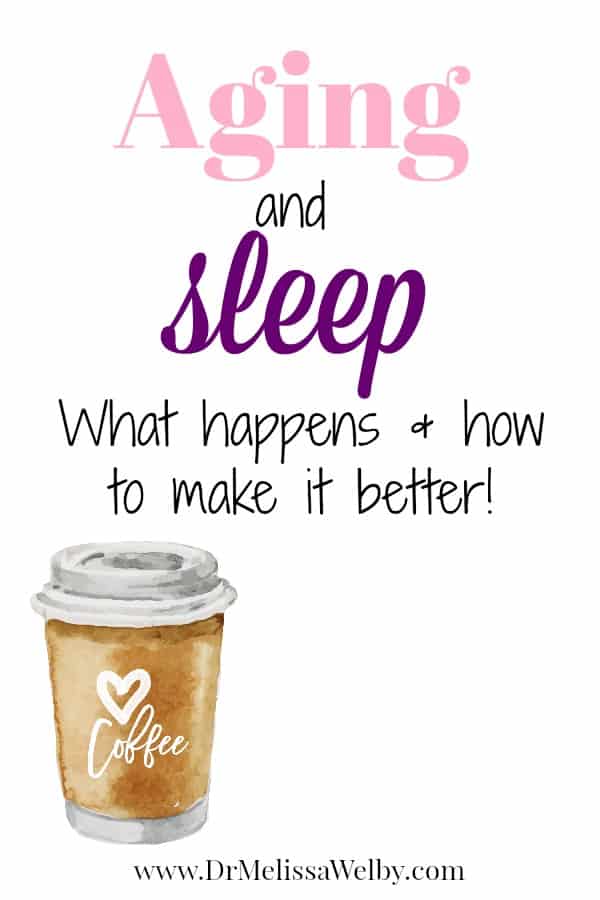Oh, the joys of aging and sleep!
Insomnia in the elderly is a frequent struggle. The amount of sleep people need (and the quality of sleep) changes over a lifetime. Sleep may be affected by genetics, mental health, physical health, and medications. These changes can be part of the normal aging process and can happen independently of medical or psychiatric illness.
Sleep and Aging: What frequently happens with insomnia in the elderly?
- Reduce total sleep time,
- Cause daytime sleepiness,
- Increase the number of times you wake up after you fall asleep (reduce sleep efficiency),
- Reduce dream (REM) sleep,
- Cause a lighter sleep,
- Reduce the amount of slow wave sleep so there is less restorative sleep,
- Shift your circadian rhythm so you are sleepy earlier in the evening and wake early in the morning.
Read here for an in-depth article of everything you ever wanted to know about aging and sleep.
Treatment of insomnia in elderly individuals:
There are many treatment options for sleep problems.
Aging and Sleep Hygiene
Before medication is considered it is important to optimize sleep hygiene. Older adults can be more sensitive to environmental disruptions (ie noises and light) so try to set up your sleep space as interruption-free as possible.
Learn more about sleep hygiene by reading my post full of tips to help you sleep better: Can’t sleep? Back to basics!
Cognitive Behavioral Therapy for insomnia:
If changes in sleep hygiene don’t solve the sleep issues try cognitive behavioral therapy for insomnia (CBTi).
Worries about sleep, racing thoughts, and negative emotions may cause and perpetuate issues with sleep. CBTi can teach people how to fall asleep faster, stay asleep and feel better during the day even if you don’t have the “perfect” night sleep. The goal is to establish healthy sleep patterns so falling asleep and staying asleep become automatic and natural.
Unlike sleeping pills, CBTi helps you overcome the underlying cause of your sleep problems and can help you reduce or eliminate the need for medication. Benefits from CBTi can be sustained whereas effects of a sleeping pill are often short-term.
It is important to work with a therapist who specializes in sleep therapy. If you are having trouble finding someone in your local area or if it is more convenient to find treatment online there are several online programs that can be very helpful. See my post on CBT for insomnia for a list of online options.
Insomnia in the elderly: Are Sleep Medications Safe?
If medication is necessary to treat the sleep issues a careful risk/benefit analysis with your doctor should be done first. Unfortunately, as you age you may be more at risk of side effects.
It may seem quick and easy to take a medicine for sleep, and sometimes it is necessary, but be aware of the risks. Not to sound too dramatic…… but it would be terrible if you got up in the middle of the night to go to the bathroom, fell, and broke a hip because your balance was impaired from a sleep aid!
There are several medications used for sleep known to potentially affect balance. Here are a few culprits (not a complete list): Ambien (zolpidem) and benzodiazepines like Xanax (alprazolam), Ativan (lorazepam), Valium (diazepam), and Klonopin (clonazepam).
Sometimes people are able to get away with using a tiny dose of Benadryl or melatonin or taking a small amount of a prescription medication. However, just because medications are over the counter doesn’t mean they don’t have potential risks!
Make sure you do not drink alcohol if you take a sleep aid as the extra sedation can be even more dangerous for you. To learn more about alcohol’s effects on sleep read my blog on this topic.
Use care if you do take a sleep aid and put precautions in place that can minimize fall risks.
Insomnia in the Elderly: Take precautions when you get up during the night!
Fall precautions are a good idea regardless of whether you are taking a sleep aid or not.
- Get up slowly from bed.
- Create a clear path to the bathroom.
- Remove throw rugs.
- Get a nightlight to illuminate your path.
- Use a cane at night to help you be more steady.
Changes in sleep quality and quantity frequently happen with aging. Make sure to take common-sense preventative steps and precautions when trying to improve your sleep. Eliminate behaviors that could be making it worse such as drinking coffee, soda, or caffeinated tea during the day. Improve sleep hygiene and try to treat insomnia with cognitive behavioral therapy. If your sleep is still a problem discuss the risk and benefits of sleep aids with your doctor to see if a medication trial is right for you.
I recommend these products and books to help improve your sleep:




Thank you for sharing your info. I really appreciate
your efforts and I am waiting for your next post thank you once again.
I’m glad it was helpful!